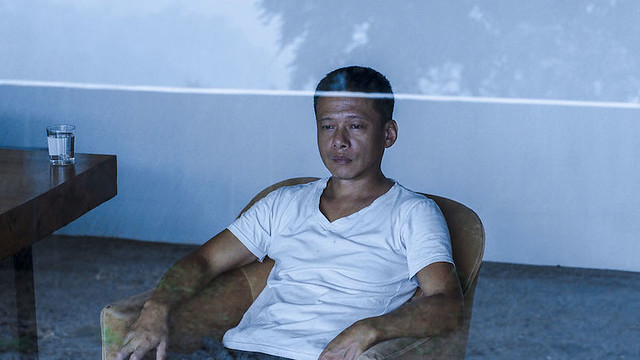 Taiwanese auteur Tsai Ming-liang abandoned scripted narrative with Stray Dog. Days is his first feature film in 6 years. His output since 2013 has been limited to short-to-medium length films, related to What Time is it There? (2001) and Wayward Cloud (2005), as well as various commissioned films, omnibus contributions and gallery installations, but of course all of them starring his muse, Lee Kang-sheng. In personal life, Lee was struck with debilitating health problems in recent years and Tsai documented his recovery over the years in various places. So it seems it's only fitting that the couple's new film would feature some of Lee's harrowing medical treatments. Days is also the most intimate and touching Tsai film in years.
Taiwanese auteur Tsai Ming-liang abandoned scripted narrative with Stray Dog. Days is his first feature film in 6 years. His output since 2013 has been limited to short-to-medium length films, related to What Time is it There? (2001) and Wayward Cloud (2005), as well as various commissioned films, omnibus contributions and gallery installations, but of course all of them starring his muse, Lee Kang-sheng. In personal life, Lee was struck with debilitating health problems in recent years and Tsai documented his recovery over the years in various places. So it seems it's only fitting that the couple's new film would feature some of Lee's harrowing medical treatments. Days is also the most intimate and touching Tsai film in years.The film consists of series of uncut long takes where camera is stationary, except for certain scenes in the middle. It starts with Lee sitting on a chair looking out the window. The scene seems to go on forever. It is slowly revealed that he is in some sort of health rehab in the countryside. In the next scene, he is seen soaking in a tub motionlessly. Next is wide shot of a squalid kitchen where a young foreign man (Anong Houngheuangsy) making a fish soup. It's the whole process from beginning to end. He cleans the fish, rinses vegetables, drains, starts a fire, gets the soup start, tastes it constantly as he puts more ingredients, lets it simmer while he goes in and out of frame, all taking before your eyes.
Next is Lee getting what seems to be an elaborate and painful acupuncture procedure. This long scene also consists of long takes but from different angles. It's an agonizing scene to look at- the treatment Lee is receiving is a combination of acupuncture, electro stimulation wired on the needles and moxa (burning of mugworms) on top of those needles. From the low angle in an extended period of time, we see both agony and ecstasy reflected on Lee's face. It is quite jarring as some of the moxa embers fall on Lee's skin and the pins catch fire near his face. This combo of agony and ecstasy turns out to be quite a theme in Days.
The next scene is Lee with a neck bracelet, precariously supporting his head with his hand, walking down the busy Hong Kong street while onlookers glancing at the camera.
We see these daily routines of two characters separately as they go on. It is crazy to think that baby faced Lee is 50 years old now. In a series of unflattering close ups, you could tell the time has taken a toll. His gait also is not as youthful. He knowingly lets his ailing flesh to be recorded in a brave performance exposing his vulnerability out in the open for all to see.
The two men, one old and the other young, finally get together in the second half of the film, albeit as a business transaction. It's Houngheuangsy as a erotic masseur and Lee his client in what seems to be a fancy hotel room. Again, this sexually explicit scene is that of an agony and ecstasy: the young man give the old man a massage and a handjob. Lee moans in pain and pleasure.
After their intimate sessions, Lee gifts Houngheuangsy a tiny music box that the young man plays for a long time. They engage conversation in broken English over the noodles in a street market.
Portraying sexual intimacy and urban loneliness are not new territories for Tsai, but its his acknowledgement that beauty is fleeting is something new in his oeuvre. This nearly silent film is both melancholic and tender. It's a deeply philosophical examination on human connections and the fleeting beauty of life.